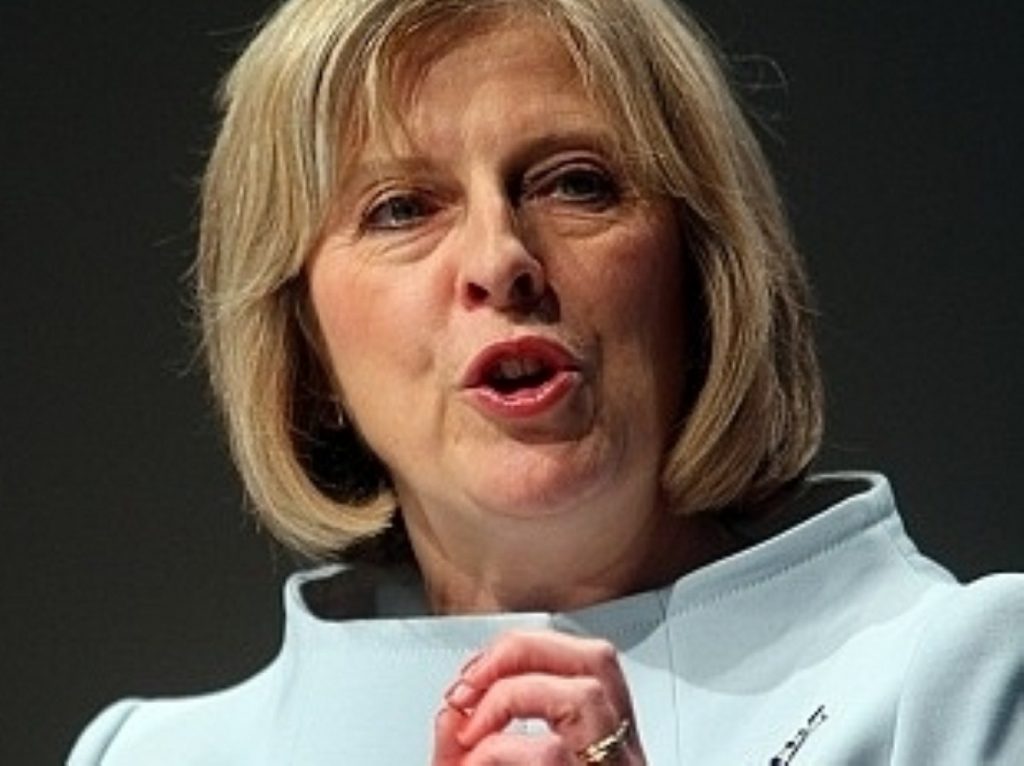May unveils £130m seismic shift in policing
Theresa May has announced details of radical reforms to police organisation today, with the introduction of controversial police commissioners, but critics say the plans could cost £130 million.
The new commissioners will replace police authorities by 2012 and have direct responsibility over budgets and strategy in a radical transfer of power.
Coalition claims that the plans will deliver intense local accountability of policing have been countered by opponents who argue the changes will see politicians compromising the operational independence of police officers.


The home secretary said: “These new measures will place the public back at the heart of our drive to cut crime, giving them a say in how their local area is policed by electing a police and crime commissioner, and strengthening the powers that police and councils need to tackle crime and disorder at a local level.
“For too long, the fight against crime has been tangled up in a web of centrally imposed red tape that has driven a wedge between law enforcement agencies and the communities they serve.”
The new officials will take over the power of police authorities to dismiss chief constables.
Commissioners will be directly elected and will be overseen by ‘police and crime panels’ made up of local councillors.
Labour are vehemently opposed to the plans, arguing that given the heavy cuts in police force budgets, the new commissioners are a waste of money.
Shadow home secretary Ed Balls said: “At its heart this goes against a 150 year tradition of keeping politics out of policing.
“It raises the very real prospect of a politician telling a chief constable how to do their job.
“People will be rightly angry if the government can find the money for this at a time when the police are facing twenty per cent cuts that will mean thousands fewer police officers.”
The cost of the new commissioners, each to be paid £122,000 in salary and benefits, could reportedly mount to £130 million, according to documents released by the Home Office.
The Association of Police Authorities (APA), which will be replaced under the plans, also expressed concern.
Rob Garnham, chair of the APA called on the HM Inspectorate of Constabulary (HMIC) to conduct a full risk assessment of the proposal.
“The APA continues to be very happy to work with the government and ACPO on a whole aspect of policing issues, but we have yet to see what level of support there is for this particular proposal”, he added.
“Our worry is that we see very little indeed, yet the government marches relentlessly on.”
The home affairs committee today warned that the commissioners would have enormous levels of responsibility on their work and proposed a four-year ‘cooling off’ period before senior police officers could become eligible for the posts.
Other proposals in the bill are set to include a new ‘National Crime Agency’ to replace Labour’s ill-fated Serious Organised Crime Agency (Soca), in order to tackle national-scale problems such as trafficking.
The changes in the police reform and social responsibility bill are accompanied by an overhaul in the licensing laws to impose late-night levies on drinking establishments and higher fines for those serving underage persons in a bid to combat binge drinking.
The government will also gain powers to temporarily ban new ‘legal highs’ as soon as they become a “cause for concern”.
Parliament Square will no longer be allowed to be used by permanent protestors. Ms May added: “We fully support the public’s right to peaceful protest; however this does not mean allowing individuals to take over a public space, particularly a historic site like Parliament Square, and prevent others from enjoying it.”









